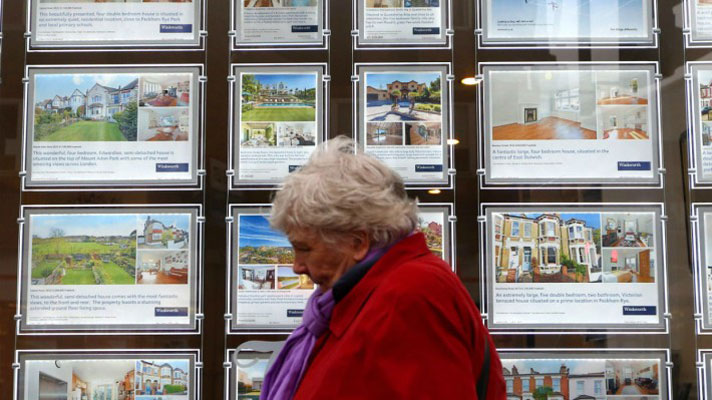Revising earlier bullish forecasts for house price growth in the UK, the company has set out a base case in which valuations are flat to the end of the year. In a worst case scenario, it says prices could fall five per cent.
Stagnation would mark a significant slowdown from current growth rates, which have been running at up to nine per cent annually according to most surveys.
But it would also be a far more benign situation for homeowners than predicted in the lead up to the referendum, when some experts forecast falls of 25 per cent following a vote to leave the EU.
That, however, was always unlikely as it would be worse than the peak-to-trough decline during the financial crisis between 2007 and 2009.
The difference this time, say UBS, is there is no shortage of bank financing to keep the market moving. Rates on mortgages are falling, potentially stoking demand.
“Unlike the slowdown in 2007 to 2009, the origins of which can be traced to a financial sector crisis, we believe the supply of credit to the UK economy will be unhindered,” said Caroline Simmons, the deputy head of UBS’s UK investment office, reports Estate Agent Today.
“However, consumer confidence has deteriorated since the Brexit vote, and uncertainty about the economic outlook is also likely to weigh on business investment and hiring.”
Reduced consumer confidence might hinder big purchases such as buying a house, while a fall in hiring would increase overall unemployment, in turn reducing broader buying power.
Most surveys on the housing market are now predicting a less severe fall than originally feared, not least because of a shortage of property.
Halifax and estate agency Haart say house prices dipped around one per cent in July, although the rolling quarterly averages were unchanged or slightly up. It is too soon to draw any meaningful conclusions, they add.
A more substantial slowdown is predicted in the London property market and UBS is no exception. Like others, it says the problems in prime central areas set in long before Brexit, with stamp duty changes affecting high value and investment properties.


